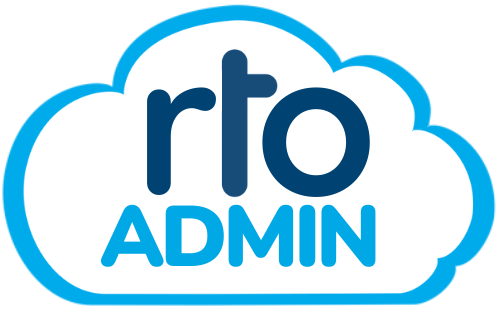Have you ever considered the impact you could have in the field of education by becoming a Registered Training Organisation (RTO)? Embarking on this journey not only allows you to deliver accredited courses at both national and international levels, but it also positions you to contribute significantly to the workforce and the education sector. As an RTO, you can offer recognized qualifications that open doors for students in diverse industries, enhancing their skills and boosting employability.

Understanding the Role of an RTO
Being an RTO means you’ll have the responsibility and privilege of providing nationally recognized training and qualifications. This esteemed status allows your organization to deliver a wide range of courses that are not only relevant but also meet industry standards. In a world where skills and qualifications can shape career trajectories, becoming an RTO gives you a platform to empower learners and make a tangible difference in their professional lives.
Expanding the Scope of Accredited Courses
One of the most significant advantages of becoming an RTO is the ability to deliver accredited courses. Whether it’s offering diplomas, certificates, or other qualifications, having your courses recognized on both a national and international scale lends credibility and attractiveness to your offerings. This, in turn, can draw in a diverse pool of students, boosting enrolment numbers and expanding your educational reach.
Benefits of RTO Registration
RTO registration provides access to a variety of benefits that can significantly enhance your organization’s capabilities and reach. From accessing government funding to engaging with industries, each advantage helps build a robust framework for delivering high-quality education.
Government Funding
Securing RTO status opens up opportunities to access government funding. This can offer a financial buffer, allowing you to channel more resources into delivering quality education. Government funding can reduce student fees, making education more accessible and increasing your institution’s attractiveness.
International Reach
Being an RTO allows you to tap into international markets. By delivering accredited courses, you can attract students worldwide who are seeking recognized qualifications that hold global validity. This not only enhances your organization’s reputation but also paves the way for a culturally diverse learning environment.
Industry Engagement
Engagement with industries improves the relevance of your courses. It provides insights into current trends and demands, ensuring your qualifications remain up-to-date and desirable. Collaborative initiatives with industry leaders can lead to programs that offer students real-world skills, making them job-ready upon graduation.
Comprehensive Course Offerings
As an RTO, expanding the breadth of your course offerings allows you to cater to a wider audience. Developing a robust catalog of courses that spans across sectors is crucial to meeting the varied interests and career aspirations of students.
Online Delivery Capabilities
The modern educational landscape is progressively shifting toward digital solutions. Integrating online delivery into your RTO can cater to the evolving needs of learners who seek flexibility. Online platforms expand your reach, allowing you to offer courses to students regardless of geographical barriers.
Financial Considerations and Planning
Setting up an RTO requires financial investment. From infrastructure development to staff recruitment, the costs can accrue quickly, necessitating comprehensive planning to ensure sustainability.
Initial Cost Estimations
The financial outlay for establishing an RTO can vary widely. Factors such as location, size of the institution, and the range of courses offered will influence initial expenses. Developing a clear budget that accounts for these variables is crucial to avoid unforeseen financial hurdles.
Strategic Financial Planning
Thorough financial planning is essential not only at the onset but also as the RTO grows. Regularly revisiting your financial strategies ensures that you can adjust to changes in the educational market and manage your resources efficiently.
Key Considerations for Setting Up an RTO
In establishing an RTO, several critical factors need to be carefully evaluated. These considerations are pivotal to ensuring that your organization is prepared to operate effectively and deliver value to students.
Industry Relevance
The choice of courses and programs to be offered needs to reflect current industry trends. By aligning with market demands, you position your RTO to produce graduates ready to enter the workforce with skills that employers value.
Expansion of Existing Services
If you are currently part of an educational institution, consider how RTO status can expand your offerings. This could involve introducing new courses or enhancing existing programs to add value and attract different student demographics.
International Student Attraction Through CRICOS Registration
For RTOs looking to draw students internationally, the Commonwealth Register of Institutions and Courses for Overseas Students (CRICOS) registration is key. This enables your institution to enroll international students, further broadening your reach and enhancing cultural diversity.
Choosing the Right Training Packages and Skills
Selecting appropriate training packages is an integral step in the RTO establishment process. These packages form the backbone of your course offerings and determine how well your graduates will meet industry needs.
Aligning with Industry Demand
To ensure that your RTO remains viable and competitive, the training packages you offer must align with the skills in demand. Engaging with industries during this decision-making process can provide insights into the qualifications that are highly sought after.
Ensuring Long-Term Viability
The long-term success of an RTO hinges on its ability to adapt to evolving educational requirements. Continuously reviewing and updating training packages keeps your offerings relevant and ensures sustained interest from prospective students.
Implementing an AVETMISS-Compliant Student Management System
A crucial component of any RTO’s infrastructure is the Student Management System (SMS). This system manages critical aspects of student administration, ensuring that operations run smoothly and comply with regulatory standards.
Comprehensive Student Management
An AVETMISS-compliant SMS handles enrolment, financials, and compliance, providing a centralized hub for managing student data. Efficiently managing these elements enhances the student experience and ensures that compliance requirements are met.
Integration with Learning Management Systems
For RTOs offering online courses, integrating the SMS with Learning Management Systems (LMS) is vital. This integration supports effective online learning delivery, allowing for seamless course management and enhanced student engagement.
Navigating ASQA Regulations and Compliance
The Australian Skills Quality Authority (ASQA) plays a pivotal role in the regulation and compliance of RTOs. Understanding how to navigate these regulations is critical for maintaining your RTO status and providing quality education.
ASQA’s Role in Quality Assurance
ASQA is tasked with ensuring that RTOs meet the high standards expected in education delivery. Regular audits and monitoring help maintain these standards, ensuring that students receive a valuable and recognized qualification.
Registration Process and Documentation
The registration process with ASQA involves submitting comprehensive documentation. It’s imperative to be thorough during this process, as any post-submission changes are heavily restricted. Preparing meticulously ensures that all legislative requirements are adhered to, paving the way for a smooth registration process.
Embarking on the Journey of Becoming an RTO
The journey to becoming an RTO is filled with opportunities and challenges. While the process requires considerable effort and investment, the rewards can be equally significant. By delivering accredited courses, you play a crucial role in shaping the future of education and equipping individuals with the skills they need for success. As you venture into this arena, thoughtful planning and a commitment to quality are your keys to establishing a successful and impactful RTO.



